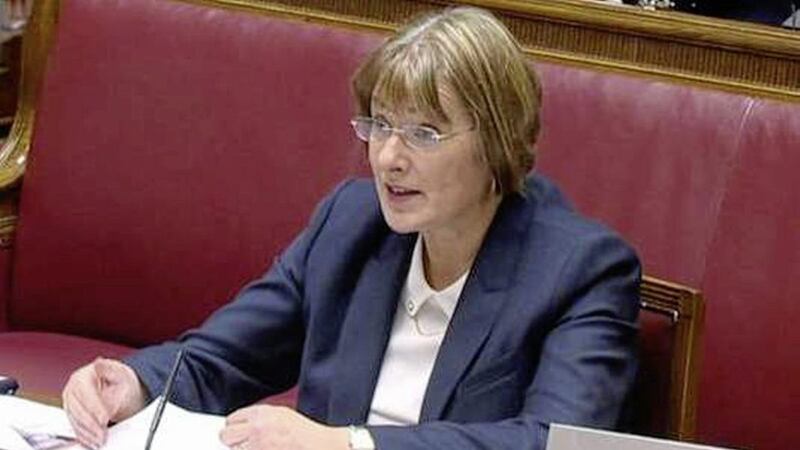LEAFLETS explicitly promoting the benefits of the Renewable Heat Initiative (RHI) scheme which were produced and distributed by biomass boiler companies were "not seen" by officials in the department which had launched the subsidy.
Fiona Hepper, the former head of the energy division at the Department of Enterprise, Trade and Investment (Deti), yesterday returned to give evidence to the public inquiry into the botched green energy scheme.
Companies using RHI promoted its benefits' in advertising leaflets, with slogans including "earn as you burn" and "20 years of free heat".
Senior counsel David Scoffield said that the leaflets showed there was "an awareness" in the market that the scheme could be "used in a way which was very lucrative".
Ms Hepper said she "didn't know how" officials had missed the pamphlets.
"We didn't see these leaflets and looking back I wish I had seen some of them. That would have triggered questions to be asked. I certainly did not have any of these leaflets drawn to my attention," she said.
Inquiry chair Sir Patrick Coghlin observed that despite "all these lurid leaflets and the fact that lots of people knew outside, what that meant was completely lost on the department".
Ms Hepper said her officials knew the subsidy rate was higher than the fuel price, but had factored in extra "hassle costs" of running a boiler to come to the conclusion that the tariff was justified.
She said it was 2016 before they realised they had got it wrong.
A report by external consultants and provided to Deti in June 2013 concluded that a target of producing 10 per cent of Northern Ireland's heat from renewable sources by 2020 - a driving factor in setting up the RHI scheme - was not going to be met.
Ms Hepper said her team did not share the details with the minister or the Assembly's enterprise committee because they wanted to get "more certainty around those figures" and considered the scheme to be "in its early days".
There were also conflicting accounts of what information was given to Ms Hepper's successor, John Mills, about cost controls and reviews of the scheme when the head of DETI's energy division left her post in late 2013.
In his written evidence, Mr Mills said: "There was no alarm bell ringing in relation to RHI costs or tiering or other matters of this nature."
Ms Hepper said that in a "handover note" she gave her successor an "overview of the genesis of the RHI scheme" and mentioned "the budget" and the "upcoming review".
Meanwhile, a report into the scheme in Britain, published yesterday by the National Audit Office, has criticised the initiative for not having "achieved value for money".
"It does not have a reliable estimate of the amount it has overpaid to participants that have not complied with the regulations, nor the impact of participants gaming them, which could accumulate to reduce the scheme's value significantly," it said.








